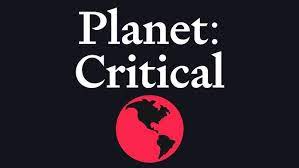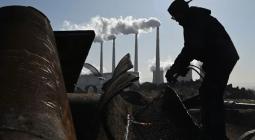Media Complicity in the Climate Crisis
How to kill a planet
Last week, I interviewed Lucy McAllister on Anglophone media’s coverage of the climate crisis, and the phenomenon of “balance as bias”, in which journalists leaning on the time-old tradition of “balanced” reporting by giving space to the “other side” of the climate “debate” actually creates bias.
The 2004 Boykoff & Boykoff study ‘Balance as bias’, which Lucy’s team updated, showed that journalists in the US elite press were “two sides-ing” the climate crisis by giving column inches to climate deniers. The updated study expanded the scope by collecting data from papers across five Anglophone countries. They found that reporting on the climate crisis has improved, with 90% of the articles in the study accurately reporting the science—that climate change is anthropogenic. However, there were statistical differences between the left and right wing, with some right wing rags such as the UK’s The Telegraph achieving just 70% accuracy. Lucy also said the problem spanned Murdoch-owned media across the five nations.
Discourses of Delay
Whilst coverage has improved, Lucy explains that the tactics for misrepresenting the climate crisis have become far more sophisticated. She revealed the phenomenon of “discourses of delay”, a subtle tactic deployed by the right wing who is no longer foolish enough to outright deny climate change. Instead, column inches are being given to climate delayers: those who want to delay action being taken, those who say that it's too expensive, those who claim labourers will lose their jobs, and those who claim it’s just not as much of a problem as the 97% of scientists who are in consensus on this topic would have us believe.
These people are in no way denying that climate change is anthropogenic, but they are delaying our ability and our desire to take action. The work of Lucy and her colleagues show that, in some rags, more column inches are being given to these people in certain articles than climate scientists, policy-makers and other relevant experts.
Here are some of the most popular discourses of delay: It's too expensive. We need to protect jobs. It's impossible. If we degrow then we'll lose our global position. What about China's emissions? What about India's emissions? Population collapse is the real problem.
Even using hydrogen as heating is a form of delay because this technology is supported by the fossil fuel industry (blue hydrogen is made using fossil fuel energy) seeking to maintain relevance on a planet it is polluting to death.
These are all ways of impeding the necessary action we need to take if we're going to provide a hospitable planet for human beings and the many species with whom we live. Lucy says these discourses of delay are a form of normalising not taking action—the more that it is said the easier it is to believe. Shifting Baseline Syndrome comes to mind, a psychological phenomenon where people adapt to the “new normal” and find it difficult to reorient themselves in the cultural norms and expectations of the recent past when things were very different.
Most subscribers to this newsletter and many others will recognise that climate change is not merely anthropogenic, but a result of a voracious, growth-obsessed, neoliberal economic system—but you won’t see that on the news.* Instead, we are still subject to the individualisation of responsibility, the driving narrative that citizens as consumers are responsible for ecological breakdown, and that the best weapon in your arsenal is your purchasing power (a sick joke to make in broken Britain). Of course, this framing is a logical fallacy — if you're using your buying power to make changes then you're still subscribing to the economic system that is causing the problem.
People Power?
Let’s put to bed the myth that consumers have power, and that papers publish what their readers want. Studies have shown that the media doesn’t publish what they think their audience wants to know. Instead, journalists are gate-keepers of information, setting the agenda for public discourse. The belief of the "symbiotic relationship between publication and reader is simply false, no doubt a self-empowering narrative which denounces actionable responsibility. Once one decides upon your political slant, your paper of choice feeds you what they deem important, not what they think you deem important. publications don't publish. What they think their audience wants to read.
The public square is dead, folks.
What are the solutions? What are the framings that we can participate in? Lucy highlights that studies show that people respond well to positive framing and solutions journalism. Equally, reframing the climate crisis as a health problem, and an immediate problem, bolsters support for climate policies. Reporting on bottom-up community solutions which highlight imagination and creativity is also incredibly helpful.
A critically important note is that the balance as bias phenomenon is much less present in global south media, in nations which are on the frontline of the climate crisis.
Perhaps, then, if we want an accurate understanding of the climate crisis and what needs to be done, we must abandon privately-owned, for-profit, Western media, bound to the same economic superorganism cannibalising the planet, and the ideological dictates of corporate monopolies and maniacal oligarchs.
Just a thought.




